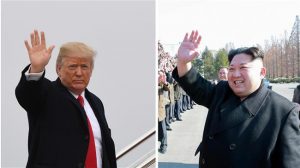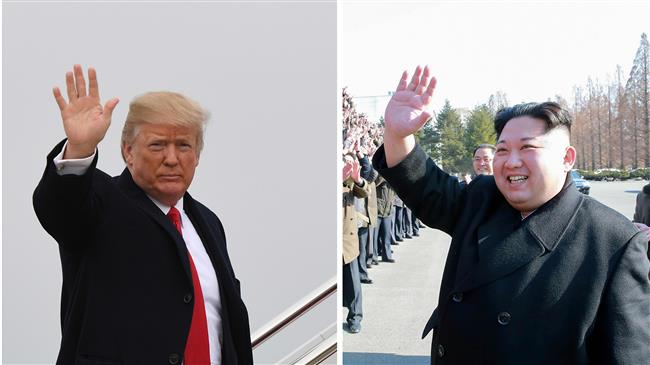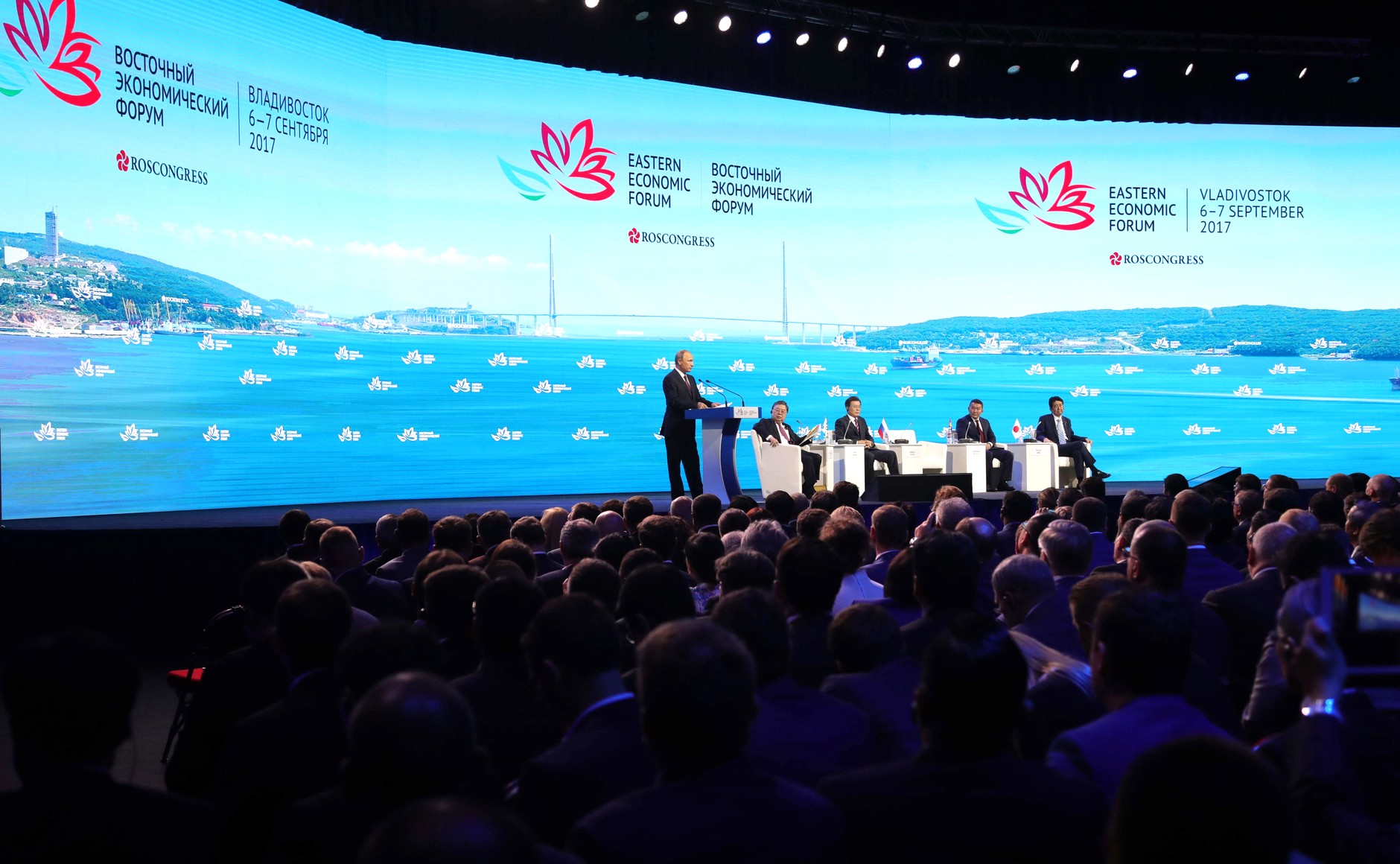The ‘Trump Card’ In Korean Peninsula In Times of Uneasy Peace
K.M.SEETHI
Countercurrents, 24 May 2018

The US President Donald Trump has done it again. He has withdrawn from his commitment to a planned summit with the North Korean leader Kim Jong-un in Singapore on 12 June. Trump announced this amid reports of North Korea dismantling its nuclear facility in Punggye-ri on Thursday. Trump stated that he had come to this decision following “hostile” statements from North Korea. He said it would be “inappropriate” to hold the summit due to the “tremendous anger and open hostility.” In a letter to Kim, Trump hoped that he would look forward to meeting him “some day.” In response to the statement by North Korean leaders, he said: “You talk about your nuclear capabilities, but ours are so massive and powerful that I pray to God they will never have to be used.”
Meanwhile, in a significant step, North Korea has shut down its nuclear testing site at Punggye-ri in what is said to be the first step toward denuclearization. A group of media personnel from
South Korea, the United States, the United Kingdom, China and Russia witnessed the closure of the site in the northeastern part of the country. Three of the four tunnels were reported to have blown up. The remaining one was already not in use. Reports indicated that other establishments including observatories, staff accommodation and military facilities were also smashed. Of the four tunnels in Punggye-ri, the first one witnessed North Korea’s first nuclear test in 2006. It was, however, discarded following radioactive contamination. The second one saw the five subsequent tests during 2009-2017. Tunnels three and four were, however, not used. Earlier Kim Jong-un had stressed that “the Punggye-ri site shutdown involves not only tunnels that cannot be used any longer, but also two more tunnels that are larger than those and are in good condition.”
Many eyebrows were raised when the news of the shutdown reached world capitals. This has come in the midst of several conjectures whether the proposed Trump-Kim summit would take place as scheduled. The US President Donald Trump’s recent nuclear policy shifts and overtures regarding North Korea and Iran already generated a lot of responses. While there are concerns and anxieties regarding Trump’s abrogation of the nuclear deal with Iran, the much-projected summit with the North Korean leader Kim Jong-un on 12 June has already been under strain in the wake of statements by leaders of both countries.
North Korea warned that it might pull out of the summit if Washington continued to insist Pyongyang abandon its nukes unilaterally. Its vice-foreign minister Kim Kye-gwan took exception to the US leaders making irresponsible statements. He referred specifically to the comments made by the US National Security Adviser John Bolton. Kim Kye-gwan went to the extent of saying that his country did not hide its “feeling of repugnance towards him.” Bolton’s statement that “Pyongyang has the Libya model of verifiable denuclearization to follow” obviously angered the North Korean leaders.
Again, the US Vice-President Mike Pence warned North Korea not to ‘play’ President Trump if they meet next month. In an interview, Pence said that such a move would be a “great mistake” by Kim Jong-un. Following Pence’s statement, North Korea warned that it was up to Trump to decide whether he would want to “meet us at a meeting room or encounter us at nuclear-to-nuclear showdown.” It came after Trump indicated that there was a “substantial chance” that he would put off or abandon the summit if Kim could not meet “certain conditions.” These ‘conditions’ are certainly going to make a change in the conditions of US-North Korea relations, and thereby the entire political dynamics of East Asia. Choe Son Hui , a person close to Kim, already came down heavily against the Trump administration, calling Pence a “political dummy,” obviously for the comments he made to Fox News. She said: “As a person involved in the US affairs, I cannot suppress my surprise at such ignorant and stupid remarks gushing out from the mouth of the U.S. vice-president.”
Choe further warned that comparisons with Libya showed American officials’ inadequate understanding of the nuclear reality. She said: “We could surmise more than enough what a political dummy he is as he is trying to compare the DPRK, a nuclear weapon state, to Libya that had simply installed a few items of equipment and fiddled around with them.”
Referring to the “Libyan model,” Choe reminded the US that like Iran, Libya did not possess an operational nuclear weapons programme when it entered into a deal with the West. However, Pyongyang considers itself as a nuclear weapon state and hence North Korea should be treated as an equal to the United States and other nuclear powers. Obviously, this would have angered Trump.
North Korea’s claim is not without reason. According to Hans M. Kristensen and Robert S. Norris, Pyongyang has made significant progress, over the past two decades, in building a powerful nuclear weapons arsenal. The country already “detonated six nuclear devices – one with a yield of a couple hundred kilotons – and test-flown a variety of new ballistic missiles that potentially put the United States and Europe in range” (Bulletin of the Atomic Scientists, 8 January 2018). A major question about its nukes was if North Korea has developed fully functioning nuclear warheads that could be delivered with a ballistic missile. Based on information accessed, Kristensen and Norris estimated that North Korea would have “produced sufficient fissile material to build 30 to 60 nuclear weapons, and that it might possibly have assembled 10 to 20 warheads.” North Korea is also believed to have operational nukes for shorter-range missiles such as the Nodong (Ibid). It is in this background that Choe’s warning signals possible setbacks in the proposed summit: “We will neither beg the US for dialogue nor take the trouble to persuade them if they do not want to sit together with us.”
According to political commentator James Petras, the core assumption of “Trump’s strategic thinking is that ‘power works’: the more intransigent his posture, the greater his belief in a unipolar world based on US power.” As such, he “ interprets any ally, adversary, competitor who seeks negotiations, reciprocity or concessions is ‘weak’ and should be pressured or forced to concede greater concessions and further retreats and sacrifices, up to the ultimate goal of surrender and submission. Petras reminded that Trump abrogated the accord with Iran because the original deal was based on “retaining US sanctions against Iran; the total dismantling of its nuclear program and calling into question Iran’s limited role on behalf of possible allies in the Middle East.” He said that “Iran’s one-sided concessions and trading military defence for market opportunities encouraged Trump to believe that he could intimidate Iran militarily by closing all its markets.”
Petras observed that “Trump’s unilateral declaration of a trade war against China accompanied his belief that military threats led to North Korea’s “capitulation” – its promise to end its nuclear programme.” His major aim is to make “North Korea into a military satellite encroaching on China’s northern border; and a trade war that drives China into an economic crisis.”
Petras said that Trump expects China to decline as a world economic power so that “the US will grow and dominate the Asian and world economy” (James Petras, “Reasons Trump Breaks Nuclear-Sanction Agreement with Iran Declares Trade War with China and Meets with North Korea,” James Petras Website, 15 May 2018, at https://petras.lahaine.org/reasons-trump-breaks-nuclear-sanction-agreement/).
As things stand, the US-North Korea relations are likely to be further strained by a wide range of issues like Libyan model (of unilateral nuclear disarmament), American military control over the East Asian region and problems in trade relations with China. Trump is now more arrogant and unyielding.
North Korean leader will surely demand the termination of sanctions, among others, even if the summit is held “some time.” Kim will think many times before offering a renunciation of nuclear weapons, particularly after Trump’s abrogation of the Iran deal. Kim knows very well that the Trump administration is so obsessed with its “America First” doctrine that it hardly respects international agreements and commitments.
What Kim did on Thursday at Punggye-ri site is only a gesture that North Korea is no longer ‘unyielding’ on crucial nuclear question. However, renunciation of nuclear weapons is an entirely different question which calls for a much serious and demanding conversation between Trump and Kim. That possibility is now scuttled by Trump with his brinkmanship and shortsightedness.
Peace in Korean Peninsula is again a matter of wild conjectures.



